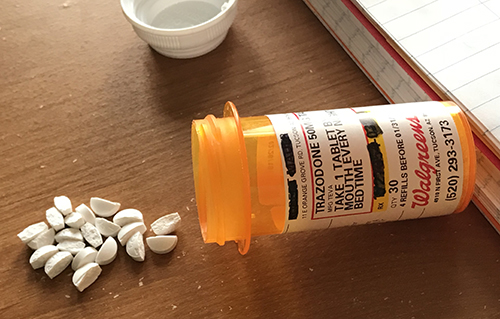Individuals with ALS, frontotemporal dementia, carry a mutation in the gene C9orf72—resulting in repeated DNA sequences. These repetitions result in the production of toxic proteins that are associated with the development of ALS. Now, a new study aims to target a stress response with a known drug that may result in a decrease of toxic-protein production. "Both cellular stress and over-excitation eventually converge into the integrated stress response,” explains first author and graduate student, Thomas Westergard.
Learn more about ALS:
"Understanding what triggers toxic proteins production helped us hone in on drugs that could block them in laboratory tests," says co-senior author Aaron Haeusler, PhD, an Assistant Professor of Neuroscience within the Vickie & Jack Farber Institute for Neuroscience. Specifically, the researchers showed that the stress responses that trigger toxic protein production are similar to what happens during a seizure event.
The known drug used in the study is called ‘Trazodone’ and is currently approved for the treatment of depression and known to act on stress response. Trazodone was tested on models of the disease and was found to indeed inhibit toxic protein production of toxic protein in a cellular model contained the mutation. "This is a significant step forward in our collaborative approach," said co-author Dr. Piera Pasinelli, PhD, who lead the Jefferson Weinberg ALS Center. "Working together allowed us to speed up the research process getting from the identification of the "pathogenic stress" to testing a potentially useful drug. ALS is a complex and heterogenous disease that needs this collaborative approach, with each lab contributing its own expertise, to fill the gaps and to put together this complex puzzle in a systematic and efficient way.”

Researchers are now looking forward to expand their studies for other compounds that might work better than trazodone. Results of the study were published in EMBO Molecular Medicine.
Source: Science Daily
-
APR 30, 2024Immuno-Oncology Virtual Event Series 2024
-
MAY 07, 20243rd International Biosecurity Virtual Symposium
-
JUN 06, 2024The Future of Scientific Conferencing
- See More

















































